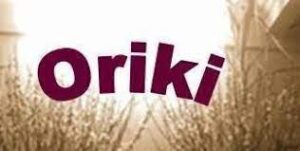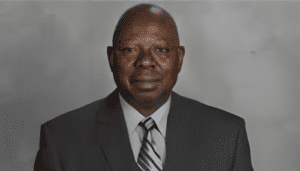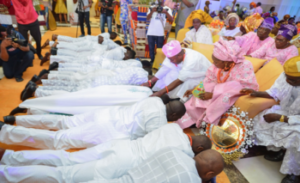
Prudent expenditure and Nigeria’s quest for debt sustainability
In recent times, the media has been awash with news about the huge debt burden that the incoming government would inherit from the President Muhammadu Buhari administration.
This started after Buhari signed the 2023 budget of N21.83trillion into law in December, 2022, and said the country could pay N1.8trillion in extra interest on borrowings.
Nigeria’s external debt is considered to be the biggest in sub-Saharan Africa. It has already been rescheduled several times.
In spite of the rescheduling and refinancing by creditors who were either members of the Paris Club (governments), London Club (banks) or independent creditors, arrears of this debt kept accumulating over time.
The President, however, justified government borrowing to finance infrastructure, asserting that his government took loans in the interest of the country to solve infrastructure deficit.
“We have so many challenges with infrastructure. We just have to take loans to do roads, rail and power, so that investors will find us attractive and come here to put their money,” he told members of the Presidential Economic Advisory Council.
He regretted that the failure to provide the infrastructure for effective transportation deprived the country of its well-deserved status as the West African hub for air cargo transportation and trans-shipment of goods.
The Debt Management Office (DMO) recently announced that Nigeria’s total public debt stock as at Dec. 31, 2022 was $103.11 billion.
DMO is the federal government agency established to centrally coordinate the management of national debts.
It explained that the Debt Stock was made up of the domestic and external debt stocks of the Federal Government, the 36 State Governments and the Federal Capital Territory.
A breakdown of the public debt stock showed that 37.82 per cent was external, while the balance of 62.18 per cent was domestic.
Findings revealed that the comparative debt stock for Dec. 31, 2021 was $95.77 billion.
According to the DMO, in terms of composition, total domestic debt stock stood at $61.42 billion, while total external debt stock was $41.69 billion.
It is noteworthy, however, that the debt figure, excludes the N22 trillion Federal Government’s indebtedness to the Central Bank of Nigeria (CBN), through Ways and Means Advances.
Finance experts say Ways and Means Advances is a loan facility used by the apex bank to finance the government during temporary budget shortfalls. It is, however, subject to limits as prescribed by the constitution.
The Ways and Means Advances are presently awaiting securitisation by the National Assembly, and can only be added to the country’s public debt after such securitisation.
According to the Director-General of DMO, Patience Oniha, the reasons for the increase in total public debt stock were new borrowings by the Federal Government and sub-national governments, primarily to finance budget deficits and execute capital projects.
“The issuance of promissory notes by the Federal Government to settle some liabilities also contributed to growth in the debt stock,” she said.
Oniha, however, assured that ongoing efforts by the Federal Government to increase revenue from oil and non-oil sources through initiatives like the Finance Acts and the Strategic Revenue Mobilisation Initiative are expected to support debt sustainability.
She said the recently introduced Medium Term Debt Management Strategy (MTDS) provided a guide to the borrowing activities of government in the medium-term.
She explained that MTDS adequately reflected the current economic realities and the projected trends, adding that its preparation involved the consideration of alternative funding strategies available to the government.
“It seeks to meet its financing needs, taking into consideration the cost of borrowing and the associated risks, while ensuring debt sustainability in the medium to long-term,” she said.
Experts say in spite of the seeming high debt rate, there is no cause for alarm for the economy. The country’s debt-to-GDP ratio of 23.20 per cent remains within the 40 per cent limit self-imposed by Nigeria and the 55 per cent limit recommend by World Bank/International Monetary Fund (IMF).
It is also within the 70 per cent limit recommend by the Economic Community of West African States (ECOWAS).
According a study conducted by the World Bank, a debt to GDP ratio that exceeds 77 per cent for an extended period of time may result in an adverse impact on economic growth.
Records show that Nigeria’s external debt remained low until the middle of the 1970s. It was $1.5 billion in 1970 and $2.5 billion in 1975.
The situation began to get out of control around 1977 when an outstanding growth rate in the country’s debt became manifest.
The outstanding debt reached $7.5 billion in 1979 and $8.9 billion by 1980.
This was due to excess borrowing from international agencies and countries at non-concessional interest rate as a result of the decline in oil earnings.
It also followed the emergence of high trade arrears due to inability of the country to either produce or foot the bills of importation of needed goods and services.
By 2005, the nation’s debt had ballooned to about $30 billion, mostly borrowed from the Paris Club of creditors.
Nigeria and the creditors’ club then went into series of negotiations on a mutually acceptable relief on the $30 billion debt with the Paris Club.
In October 2005, Nigeria and the Paris Club announced a final agreement for debt relief worth $18 billion. The creditors had cancelled $18 billion and Nigeria repaid $12 billion. Most of the $18 billion was registered as aid.
The deal was completed in April 2006, when Nigeria made its final payment and its books were cleared of any Paris Club debt.
Some Nigerians opined at the time, that it did not make economic sense to pay such huge amounts of Foreign Exchange in one fell swoop just to enjoy debt relief.
They argued that the funds could have been channeled into improving infrastructure and creating enabling environment to attract viable foreign investments for economic growth.
The government of President Olusegun Obasanjo, however went ahead with the payment and exited the country from the huge debt burden of the Paris Club.
The relief, however, turned out to be temporary as, by June 2015, the country’s debt had again jumped to $63.8 billion, representing the country’s highest debt profile since 2007.
An economist, Tope Fasua, advised the Federal Government to improve on the budgeting system to check deficit financing and make the annual budgets more impactful.
“Unfortunately, we have found ourselves in a difficult scenario due to the pandemic and falling crude oil prices and we just have to go borrowing like most other countries in the world.
“Government should ensure that our borrowings are effectively utilised for optimum economic impact,” he said.
Chief Executive Officer of the National Economic Summit Group (NESG), Laoye Jaiyeola, said that though Nigeria’s debt-to-GDP ratio could be considered low, the revenue that went into debt servicing was still on the high side.
“We should all be worried about the rising debt profile of the country.
“Some people say that the debt-to-GDP ratio is still low. It could be low, but servicing debt is still a challenge,” he said.
He suggested a drastic cut in running cost of governance, reduction in recurrent expenditure, as well as removal of subsidies in electricity and petroleum products, as a way of reducing the debt burden.
As Nigerians look forward to the inauguration of a new government on May 29, stakeholders advise the incoming administration to take aggressive measures to improve revenue generation so as to curb dependence on domestic and external borrowings to fund its annual budgets.



